What life could be like on Mars in 2070
GOVERNMENTS are already practising for a life on Mars and a renowned futurologist thinks he knows what Earth’s Martian colony could look like.
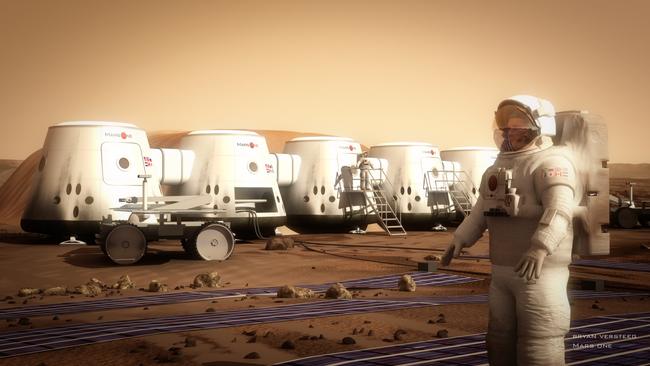
ELON Musk has successfully launched the world’s most powerful rocket, and reckons he can put humans on Mars by 2024 — but what would life be like on the red planet?
The Sun spoke to renowned futurologist Ian Pearson, who reckons Earth’s Martian colony will have its own accent, currency, and even a robot government.
He believes it’ll be around the year 2070 before there’s “a sensible-sized base” on Mars, with dozens of people.
He says the first Martians will have to be very rich, a need “good credentials” to colonise the planet.
“They will have a very special status. The first person born on Mars is going to be a celebrity for the rest of their life. It’ll be like Big Brother, we’ll be following every single development.”
But while these humans will start off like an elite space-race with high IQs and loads of cash, they’ll eventually “dilute over the generations” into normal everyday folk.
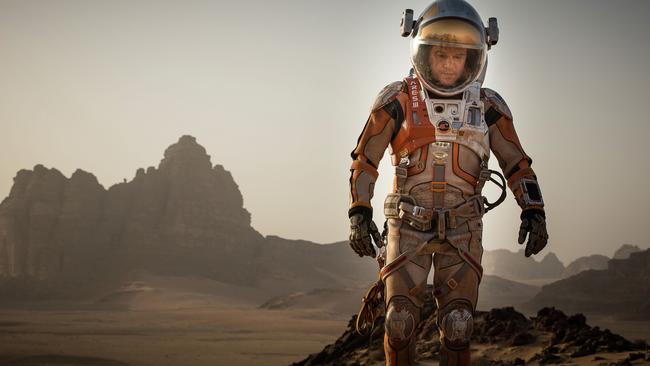
We’ll all start off on an international base — just like the International Space Station — apparently, but from there humans might spread out onto military bases.
“After that, I think once it starts getting commercialised and becomes militarily important, there will be bases springing up that belong to the Russian or Chinese or America military, or by then there might even be a European military,” says Pearson.
MARTIAN TRIBES
Once that happens, he says we’ll see “tribalism”, where we’ll be split into groups that won’t “socialise very often, because of the long time to travel”.
“That means you will see the need for governance in due course. The first bunch of people will be specially selected with social skills to deliberately get on with each other.
“Once they’ve been there for quite a while, politics will start to happen, and you’ll have left and right, and various other sorts of splits.
“Some of the ones from down here will replicate as well. People on Mars won’t be living in total isolation. They’ll still be able to watch the news every day.”
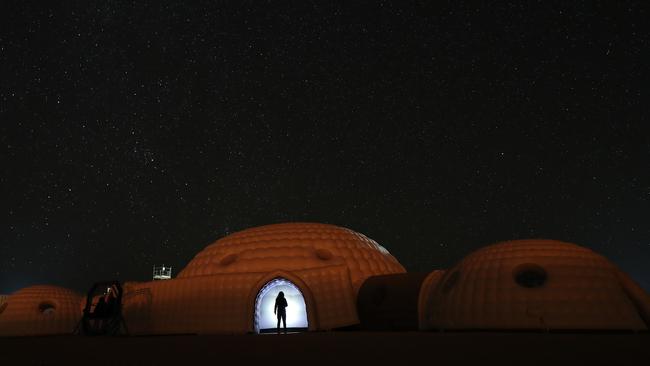
Pearson’s prediction is that people will turn to computers to help us organise ourselves, and use artificial intelligence (AI) to create a new robot democracy.
“One of the things AI is promising is AI can take into account political views of every single person, and at any given time decide what people want and make democratic decisions.
“Each person can be represented, and have AI looking after their interests, and they can vote on something every fraction of a second.”
‘MARS SPEAK’
He also believes that as well as splitting into Martian tribes, the space colonists will also become very different to their fellow humans back on earth.
“It’s very likely they’ll develop their own currency, and one reason for that is people from all sorts of different nations won’t want to use euro or dollar.”
Pearson says they’ll also “probably develop an accent, because that depends on the people around you”, which he calls “Mars speak”.
“If you’re from different regions, you absorb nuances in your speech as well, so your accent will gradually change.
“Own words and nicknames developed over time for various objects and trends. They will form their own dialect.”
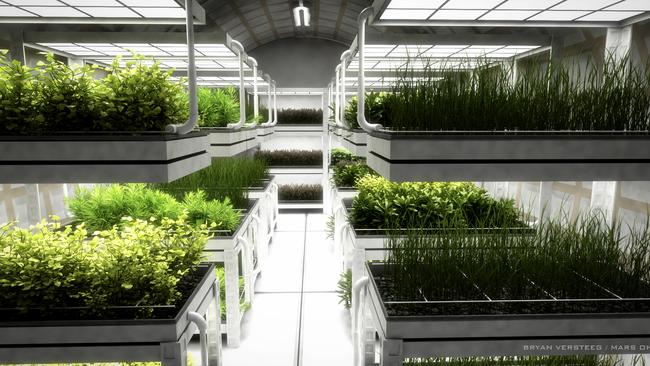
So what would humans do for fun in space? He says there’ll probably still be some kind of Netflix equivalent, so life might not be that different after all.
But we’ll rely much more on robots for our entertainment, according to the expert futurologist, because there’ll be so many of them.
“A lot of the inhabitants of Mars will be AIs, some in robot forms, some running on the computer, occasionally using an avatar or hologram to talk to people.
“A lot of humans will be there, be probably far more robots and AIs than humans, so people will be in the minority.
“Robots are so smart, they will also form quite a large part of the socialising.”
He says we could see a resurgence in people going to the theatre, because lifelike robots could replace the actors in a show.
“Instead of watching TV with a few soap stars running the Mars equivalent of Coronation Street, it could be produced in real time, with a whole bunch of AIs pretending to be actors with a totally human-like appearance.”
“It could be as you watch it. It could be completely fresh and completely new. These AIs would be superhuman.”
But our relationship with computers could go even deeper.
ROBOT SEX
“By 2050, we will also have direct links between the human brain and the machine world. There will be direct brain-to-brain sharing.
“People will interact directly, share their experience and consciousness, even sexually interact in that way.
“They’ll link their bodies together; that’s just 2050 technology.”
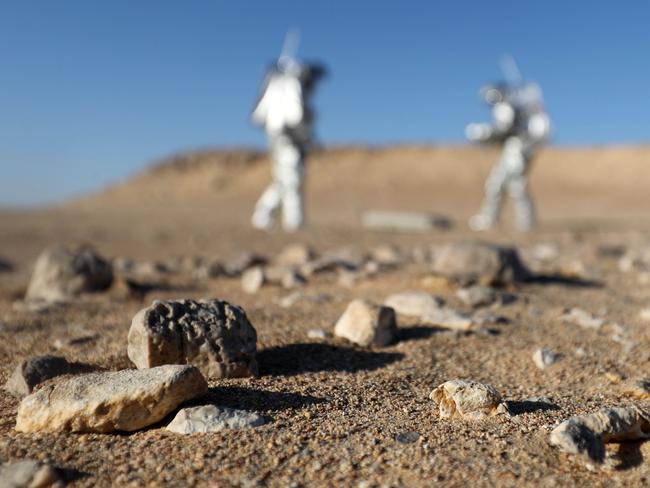
Pearson says we’ll also start to see businesses setting up shop on Mars, creating a whole new space economy.
He says that although international treaties will prevent the complete commercialisation of space, companies will “compete fiercely within the rules”.
“They’ll be allowed to lay claim to particular property on Mars if they find a mine for a particular material.
“You want people to be incentivised to develop. Saying no one can own anything wouldn’t work. You have to allow people to make profit.
“It’s not going to go completely bananas with everyone setting up Mars frontiers.
“It’s not going to be the Wild West again. It will be very civilised.”
This article originally appeared on The Sun and we republished here with permission.



